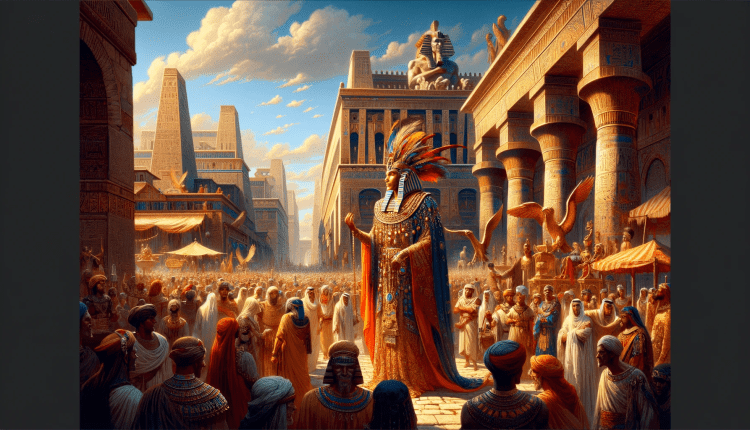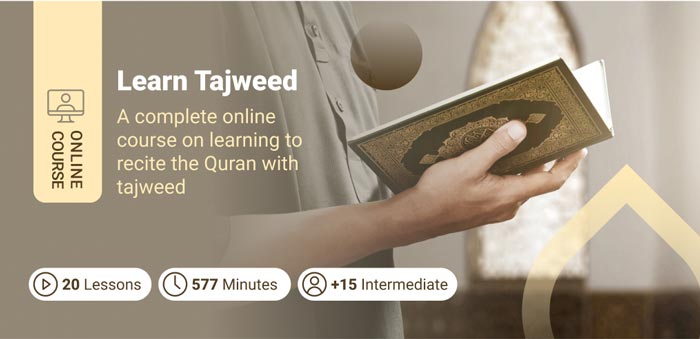Korah (The Greedy Israeli Rich Man)
Moses Vs Korah
In the ancient lands of the Israelites, there was a man named Korah, known for his immense wealth and miserly ways. This tale unfolds in the shadow of his towering arrogance and his rebellion against the divine.
Korah’s story is interwoven with that of Moses, a man who faced three formidable adversaries throughout his life. First was Pharaoh, embodying power and tyranny; then came Korah, the epitome of wealth and greed; and finally, the Samiri, a symbol of hypocrisy and cunning.
While Moses’ confrontation with Pharaoh and his government was monumental, his later encounters with Korah and the Samiri were equally significant, laden with lessons and profound meanings.
Korah was not just any man; he was of Moses’ kin, possibly a cousin or a nephew. He was knowledgeable in the Torah and initially walked the path of the faithful. However, the lure of wealth led him astray, culminating in a defiance of Moses and a fate that served as a warning to all.
The Quran speaks of Korah, illustrating his transgression against his people due to his great fortune.:
إِنَّ قَارُونَ كَانَ مِن قَوْمِ مُوسَى فَبَغَى عَلَيْهِمْ
[Indeed, Qārūn was from the people of Moses, but he tyrannized them][1]
Lacking a strong faith and character, he was seduced by his immense wealth, which led him to deviation and arrogance.
His riches were legendary, with chests of gold and silver so vast that even the strongest men struggled to carry them. This wealth, however, was his downfall.
وَآتَيْنَاهُ مِنَ الْكُنُوزِ مَا إِنَّ مَفَاتِحَهُ لَتَنُوءُ بِالْعُصْبَةِ أُولِي الْقُوَّةِ
[And We gave him of treasures whose keys would burden a band of strong men][2]
4 pieces of advice
Korah’s people, wise and God-fearing, offered him four pieces of advice, hoping to guide him back to righteousness. These, combined with their initial warning not to revel in his wealth, formed a quintet of wisdom.
The first piece of advice was to use his wealth for the life hereafter. Wealth itself isn’t evil; it’s how one uses it that matters. It can be a path to righteousness or a gateway to sin and oppression.
وَابْتَغِ فِيمَا آتَاكَ اللَّهُ الدَّارَ الْآخِرَةَ
[But seek, through that which Allāh has given you, the home of the Hereafter]
The second was a reminder not to forget his share of worldly life. Everyone has a worldly portion, but excess doesn’t enhance one’s stature. One must remember this truth.
وَلَا تَنسَ نَصِيبَكَ مِنَ الدُّنْيَا
[and [yet], do not forget your share of the world]
The third counsel was to be benevolent as God had been to him. If one expects kindness and mercy from God, how can one overlook the needs and pleas of others?
وَأَحْسِن كَمَا أَحْسَنَ اللَّهُ إِلَيْكَ
[; And do good as Allāh has done good to you.]
Finally, they warned him not to let his wealth lead to corruption and ruin.
وَلَا تَبْغِ الْفَسَادَ فِي الْأَرْضِ إِنَّ اللَّهَ لَا يُحِبُّ الْمُفْسِدِينَ
[And desire not corruption in the land. Indeed, Allāh does not like corrupters]
The identity of these wise counselors remains unknown, but it is believed they were learned and pious men, insightful and noble, understanding the intricate and obscure matters of life and faith.
Korah’s tale is a timeless reminder of the perils of wealth when it is not tempered with humility and used for righteous purposes. It teaches us about the balance between this world and the hereafter and the responsibility that comes with fortune.
Korah’s Rebuttal
Now, let us turn to the response of Korah, this defiant and unjust man of the Israelites, to his community’s wise counsel. Swelled with pride from his vast fortune, Korah replied with an air of arrogance:
قَالَ إِنَّمَا أُوتِيتُهُ عَلَى عِلْمٍ عِندِي[3]
“I was given this wealth because of a knowledge I possess.”
He dismissed their guidance, asserting that his wealth was a product of his own knowledge and expertise. He believed that his wealth was a testament to his worth in the eyes of God and that he alone knew how to manage it, making their advice unnecessary.
This rotten logic, often echoed by the wealthy who lack faith, was not unique to Korah. The Quran leaves ambiguous the exact nature of Korah’s knowledge that supposedly earned him such wealth, be it chemistry, commerce, industry, agriculture, or management skills.
The Quran addresses Korah’s haughty claim and reminds him of those before him who were stronger and amassed more wealth, yet could not escape God’s punishment.
Madness of Wealth
Korah was not immune to the madness that often befalls the wealthy, one aspect of which is flaunting their riches. They find pleasure in displaying their wealth, crushing the underprivileged under the weight of their opulence. Despite the risks involved, such as breeding resentment and potential downfall, they indulge in this display without any rational objective.
The Quran briefly mentions Korah’s pompous display, as he paraded his wealth among the Israelites, perhaps with thousands of servants and horses adorned in luxury, a sight that both awed and incited envy among his people.
Many coveted Korah’s life of luxury, wishing for a taste of his extravagant lifestyle. However, there was another group, the learned and the pious, who viewed such displays with disdain. These wise men valued spiritual wealth over material riches and reminded others that the reward from God is better for those who believe and do righteous deeds.
Korah and Zakat
Korah’s arrogance reached its peak when he defied Moses’ command to pay Zakat. An infamous tale recounts how Korah sought to discredit Moses with a scandalous plot, only for the truth to emerge and vindicate Moses.
The woman involved in the plot confessed under divine oath, revealing Korah’s devious plan. Moses, overwhelmed with relief, prostrated in gratitude, and God reassured him of his authority on Earth. The earth itself, obeying God’s command, swallowed Korah and his followers, sealing their fate and serving as a stern reminder of the consequences of arrogance and disobedience.
One day, Moses said to Korah, “God has commanded me to collect Zakat (almsgiving).” But Korah refused and slanderously proclaimed, “Moses wants to consume your wealth! He brought you prayers and various obligations which you have borne; will you now let him take your wealth too?” The people responded, “We cannot bear this. What do you suggest?” Korah craftily proposed, “Let’s send a woman of ill-repute from among the Israelites to Moses and have her falsely accuse him of misconduct.”
So, they approached a woman and promised her a reward in return for her false testimony against Moses. Agreeing to their scheme, she consented to falsely accuse Moses of impropriety. Korah then approached Moses, saying, “Gather the Israelites and tell them what your Lord has commanded.” Moses complied and, upon gathering the people, was questioned about God’s commandments. He spoke of worshiping God alone, maintaining family ties, and other teachings, including the punishment of stoning for adultery if committed by a married person.
They then asked, “What if you, yourself, are guilty of this?” Surprised, Moses asked, “Me?” They called for the woman who was to testify against him. Facing her, Moses implored her by God to speak the truth. Confronted with this solemn plea, she confessed, “They enticed me to falsely accuse you, offering a reward. But I testify that you are innocent and a messenger of God.”
Upon hearing her confession, Moses fell prostrate in tears. God then spoke to him, “Why do you weep? You have authority over the earth; command it, and it shall obey you.” Moses then ordered the earth to punish those who had schemed against him, and the earth complied, dealing with them justly.
Divine Punishment
The Noble Quran says in this context:
فَخَسَفْنَا بِهِ وَبِدَارِهِ الْأَرْضَ
[So We caused the earth to swallow him and his dwelling place][4]
Indeed, when tyranny, arrogance, and the belittling of innocent believers, along with conspiring against a Prophet of God, reach their peak, the power of Allah Almighty manifests, ending the lives of tyrants in a way that serves as a lesson for others.
The phenomenon of ‘Khasf’ (the earth swallowing), which means the splitting and engulfing of the earth’s surface, has occurred several times throughout history. The earth shakes, then splits, swallowing entire cities or buildings. However, the Khasf that befell Korah was unique; it specifically targeted Korah and his treasures.
How astonishing! Pharaoh drowned in the waters of the Nile, and Korah sank into the depths of the earth! Water, the essence and basis of life, was commanded to destroy Pharaoh. And the earth, a symbol of stability and comfort, turned into a grave for Korah and his followers. Naturally, Korah was not alone in his house; he was with his accomplices and supporters, those who aided him in his oppression and tyranny. They all plunged deep into the earth.
فَمَا كَانَ لَهُ مِن فِئَةٍ يَنصُرُونَهُ مِن دُونِ اللَّهِ وَمَا كَانَ مِنَ المُنتَصِرِينَ
[Nor did he have any supporters to help him other than Allah, nor could he defend himself][5].
His friends, those who carried his luggage, his wealth, no one could save him from the punishment of Allah. Korah, his wealth, and those with him vanished into the depths of the earth.
Had Allah Not Been Merciful to Us, We Would Have Been Swallowed Up Too
The Noble Quran narrates the remarkable change in those who, just the day before, watched Korah’s procession enviously, wishing they had what Korah was given. But today, they say:
وَأَصْبَحَ الَّذِينَ تَمَنَّوْا مَكَانَهُ بِالْأَمْسِ يَقُولُونَ وَيْكَأَنَّ اللَّهَ يَبْسُطُ الرِّزْقَ لِمَن يَشَاء مِنْ عِبَادِهِ وَيَقْدِرُ
[And those who had craved his position the previous day began to say, “Ah! It is certainly Allah Who gives abundant or limited provisions to whoever He wills of His servants.][6]
They realized that no one possesses anything of their own; everything is from Allah. Allah’s giving is not necessarily a sign of His pleasure, nor is His withholding a sign of devaluing His servant. Allah tests individuals and nations with wealth, revealing their true intentions and secrets. They pondered what would have happened if their wishes for wealth like Korah’s were granted and they had met the same fate. What good would the wealth have done them? Thus, they thanked Allah for His mercy, saying:
لَوْلَا أَن مَّنَّ اللَّهُ عَلَيْنَا لَخَسَفَ بِنَا وَيْكَأَنَّهُ لَا يُفْلِحُ الْكَافِرُونَ
[f not that Allāh had conferred favor on us, He would have caused it to swallow us. Oh, how the disbelievers do not succeed!][7]
Now, the truth is clear to see, the outcome of arrogance, heedlessness, disbelief, and desire. We understand that such a life, alluring as it may appear, is desolate and dire in its end.
The last sentence of this story suggests that Korah, despite being knowledgeable in the Torah, a reader of it, and a scholar among the Israelites, and even a relative of Moses, died a disbeliever, lost in his delusion.
@islam4u.official
[insta-gallery id=”0″]
[1] 28:76
[2] 28:76
[3] 28:78
[4] 28:81
[5] 28:81
[6] 28:82
[7] 28:82


